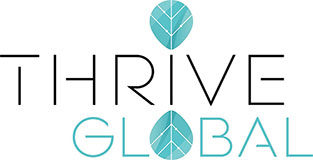
Finding Balance For The Sensitive Soul
MichaelSunnarborg / March 20, 2017 Article, Image, Link / Leave a Comment
Everyone is sensitive. We are all multi-sensory beings who experience energies through our senses—what we see, hear, taste, touch, and smell. Our brains interpret this sensory information and we respond to it according to our understanding of what the stimuli means (something is good or bad, harmful or helpful) and use our feelings as a feedback mechanism to choose our responses.
Most people are accustomed to having stimuli in their immediate environment and are able to navigate throughout life’s ups and downs without too much trouble. They take things as they come and aren’t overwhelmed easily by the energies of their immediate surroundings.
But what about souls who are more sensitive?
There has been a rise in the awareness of the Highly Sensitive Person (HSP). Author Elaine Aron points out that this is “not a new discovery, but has been misunderstood.” Aron’s book, The Highly Sensitive Person: How to Thrive When the World Overwhelms You, describes the sensitivities of 15-20 percent of the American population—including increased sensitivity to light, smells, sounds, and other environmental sensations added to their rich and complex inner life.
Sensitive people don’t just come in adult packages—they include all ages. Often mislabeled as a “problem,” a sensitive child can be misunderstood due to individual natural reactions to light, sounds, and deep inner emotions. These kids need to learn the power of boundaries and trust at an early age so that the coping strategies they develop can continue to serve them their whole lives.
As an HSP, I’ve had to learn how to navigate through the abundant array of energetic stimuli in my environments—sometimes subtle and sometimes extremely overwhelming. For example, I’m highly sensitive to the increasing speed and volume of media sources: TV, film, radio, and online social media—especially television commercials. Advertisements race so quickly that often it takes all the energy I have to watch a one-hour program on television. Thank goodness for on-demand.
While being sensitive can have its drawbacks, it can also be a gift—like noticing the subtleties in art or music or hearing the emotional content embedded in an important conversation. Sensitivity can bring a compassionate perspective to something previously thought of as ordinary. In addition, sensitive people can become the voices of empathy when minorities or other oppressed individuals need support.
Sensitive people can become translators of subtle nuances found in our world and bring clarity to the ambiguous. They may draw attention to the inconspicuous, point out exquisite detail, or describe thoughts and feelings with added color and clarity.
While Aron’s book provides a host of support information and insights about HSPs, here are a few tips from my own personal toolbox for sensitive souls:
Reduce environmental noise. A noisy environment challenges all of us, but these settings can be miserable for sensitive individuals. Finding ways to reduce or mask noises will greatly affect an HSP’s ability to focus. I’ve learned to mask audio interruptions by creating white noise (for example, running a fan at night while sleeping) or blocking out specific noises by using headphones or earplugs. I remember when the Sony Walkman® first came out and I was thrilled! Even today with my iPod, listening to calm music in my earphones helps me stay focused while reading, writing, or walking through busy airports.
Create quiet spaces. Everybody needs places for solitude and introspection, especially sensitive individuals. If you are sensitive, find those locations and spaces that will allow you to be silent and uninterrupted. Even in social situations, a temporary space like an elevator, empty hallway, or public restroom can provide substantial relief for sensitive souls who feel overwhelmed. Sometimes you just need to find a place to breathe, calm yourself, and center for a few minutes.
Schedule downtime. Blocking out time on the calendar for calming activities can be another way to help sensitive people help themselves. Whether it’s massage, yoga, journaling, or just some time alone for refreshment, adding this time to a daily or weekly routine helps maintain better balance. If you write it on the calendar, there’s a better chance it will happen.
Listen within. The best guide for the sensitive soul is intuition. Getting quiet and listening intently to the calm quiet voice within can be the best way to discern whether something—or someone—is helping or harming us. Learn to hear your intuition and then trust it. Even though we may not always understand why we get the nudges that we do, our calm inner voice will never lead us astray.
Connect with others. Sometimes we feel alone, but we are not. There are many around us who understand sensitivity and are willing to be a listening ear or shoulder when needed. When we seek out connections with other highly sensitive people, we can find common ground on which to share tips and keep ourselves healthy. Sometimes our best education comes from each other.
Become aware of others. Even if you don’t consider yourself a sensitive soul, we are all human beings and need compassion and understanding in our lives. When we become aware that sensitive souls surround us—in our work, families, and communities—we can begin to notice how their tenderness is bringing us closer to an understanding of our own sensitivities. And in return, we all become more connected and aware.
Michael Thomas Sunnarborg helps people maintain balance during transitions in their work, relationships, and life. Learn more at michaelsunnarborg.com
For Anna.
Image: Pixabay.com




One thought on “Finding Balance For The Sensitive Soul”